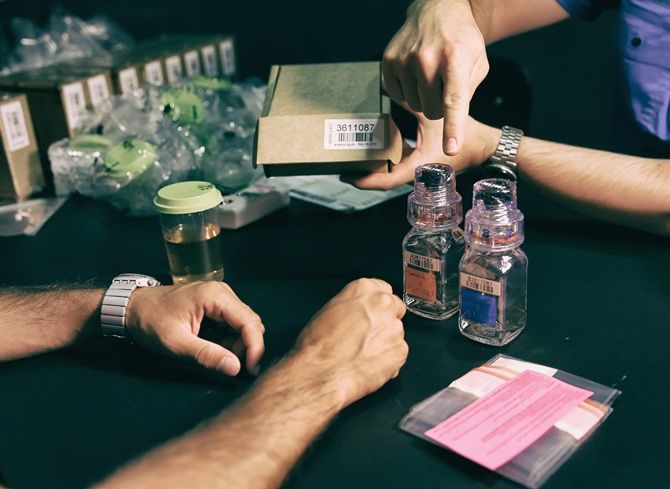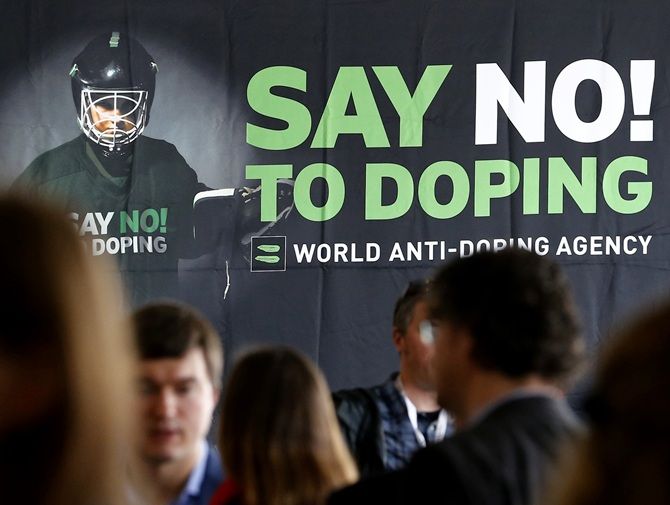‘Some of the values in these athletes were so extreme that they were downright dangerous and the risks to their health were indisputable’

Some of the readings from athletes' blood tests leaked by a whistleblower for a report exposing suspected doping were so extreme they were "downright dangerous", one of the experts cited in the report told Reuters on Monday.
"There are real questions to be asked if there is no action taken, particularly for the results taken post-2009," said Robin Parisotto, an inventor of the test used to detect the blood doping agent EPO. "Some of the values in these athletes were so extreme that they were downright dangerous and the risks to their health were indisputable."
The head of world athletics defended the International Association of Athletics Federations' (IAAF) anti-doping record as global sporting bodies called for a thorough probe into the latest allegations to plunge international sport into crisis.
That followed a report by the Sunday Times newspaper and Germany's ARD/WDR broadcaster on Sunday that they had obtained from a whistleblower secret IAAF data that indicated suspected widespread blood doping in athletics between 2001 and 2012.
In an interview, Australian Parisotto, one of two scientific experts cited in the reports, said more than 800 athletes had recorded one or more "abnormal" results, defined as a result that had less than one chance in 100 of being natural.
Such athletes accounted for 146 medals at top events, including 55 golds, the Sunday Times said.
Parisotto noted that not all the abnormal results necessarily indicated doping, as factors such as the timing of tests, altitude and testing conditions could have led to some suspicious outcomes.
"But there were values that were ... quite extreme and even taking into consideration confounding factors, there was really no disputing what that data was telling us," he said.
In response to the reports, IAAF President Lamine Diack told Reuters: "There are allegations made, no evidence. We want to look into them seriously because to say that in athletics between 2001 and 2012 we did not do a serious job with tests is laughable."
Coming only weeks before track and field's showpiece world championships in Beijing, the reports claim endurance runners suspected of doping had been winning a third of the medals at Olympic Games and world championships in that period.
The reports did not say that any athletes had failed doping tests, only that the tests had been abnormal, which can sometimes be a sign of cheating.
The allegations are the latest setback to tarnish the multi-billion dollar world of sport after the scandal at football's global governing body, FIFA.
Presumed innocence

Athletics are a central part of the Olympics, the only sporting event that rivals football's World Cup in scale and which collects billions of dollars from sponsors like Coca-Cola (KO.N), Panasonic (6752.T), Visa (V.N) and McDonald's (MCD.N).
International Olympic Committee (IOC) President Thomas Bach told reporters on Monday he had spoken to the World Anti-Doping Agency (WADA) head Craig Reedie and had full confidence in that body to investigate the claims thoroughly, adding the IOC would act with "zero tolerance" if there should be a case involving results at an Olympic Games.
"But at this time we have nothing more than allegations and we have to respect the presumption of innocence for the athletes," he said.
Medals won could be affected if any cases of doping were subsequently unearthed using newer testing techniques that did not exist at the time.
"I do not know what we are dealing with," Senegal's Diack said. "It is possible if we discover with new techniques that someone doped etcetera, etcetera then yes, otherwise no."
The reports also come weeks before a new IAAF president will be elected, with Sebastian Coe and Sergey Bubka of Ukraine bidding to replace the retiring Diack.
Power battle

Earlier, US anti-doping agency chief executive Travis Tygart said an "aggressive review" was needed to protect clean athletes. WADA has said it was "very disturbed" by the reports.
The IAAF noted that the reports were based on confidential information obtained without permission.
A heavy preponderance of the "abnormal" results were from Russian athletes, according to the media reports. Russian sports minister Vitaly Mutko has said the allegations had "nothing to do with Russia" and they reflected a power battle ahead of the IAAF leadership vote.
Russia accounted for 415 abnormal tests, followed distantly by Ukraine, Morocco, Spain, Kenya, Turkey and others. "A remarkable 80 percent of Russia's medal winners recorded suspicious scores at some point in their careers," the Sunday Times said.
The allegations concern techniques to improve the ability of blood to carry oxygen, which can give an advantage in endurance events like cycling or running over medium and long distances.
The Sunday Times and ARD said they were given access to the results of more than 12,000 tests of more than 5,000 athletes taken between 2001 and 2012.













 © 2025
© 2025